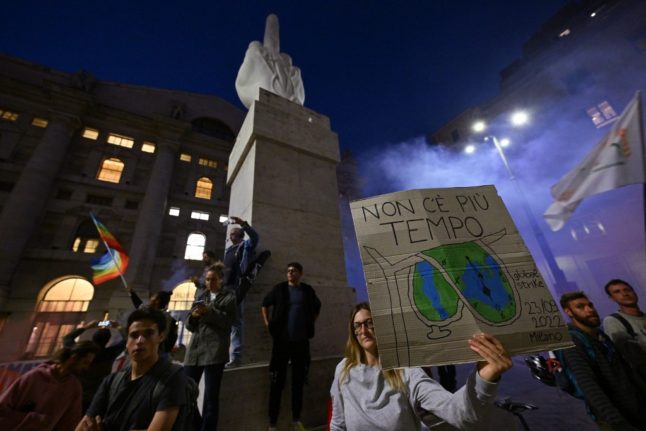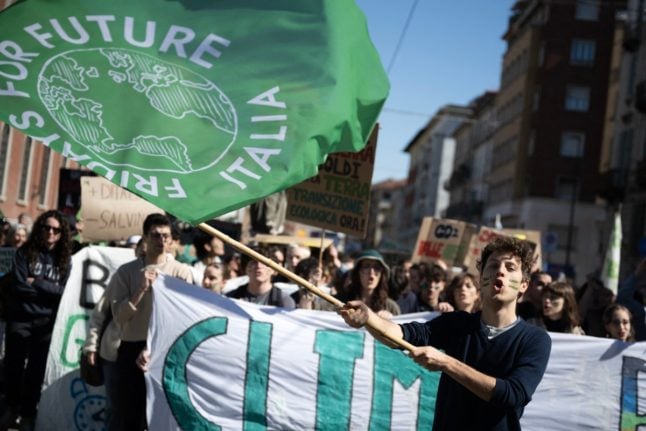The environmental organisation along with fellow green campaign group ReCommon filed the suit along with 12 private citizens from areas of Italy severely affected by extreme weather events, Greenpeace said in a statement.
The suit was “for past and potential future damages resulting from its contribution to climate change, of which ENI was well aware but chose to ignore for decades,” it said.
READ ALSO: Italy must learn to cope with drought-inducing weather: minister
The lawsuit also includes ENI’s two main shareholders, the economy ministry and Italy’s state lender Cassa Depositi e Prestiti (CDP), which own the Italian government’s one-third ownership stake in Eni between them and which “strongly influence the company’s policies”.
Greenpeace said ENI’s policies were “in blatant violation of the Paris Agreement” signed by Italy, which it said had direct implications for the climate commitments of companies like ENI.
“ENI scored record profits in 2022, yet it continues to invest in expanding its fossil fuels business, dismissing climate impacts and ignoring local communities,” said Chiara Campione from Greenpeace.

The plaintiffs have asked the court in Rome to rule on whether or not ENI has caused damages through “violations of their human rights to life, health, and private and family life”.
Eni rejected the allegations made in the lawsuit and said it was confident it would win the case, Italian news agency Ansa reported.
READ ALSO: Italy plans €60k fines for ‘vandalism’ in crackdown on climate protests
An Eni spokesperson said the company would show in court that the accusations were “groundless”.
The lawsuit is the first of its kind filed against a private company in Italy, and comes following two landmark climate cases in the Netherlands
In recent years, a growing number of organisations and citizens worldwide have turned to the courts in an attempt to force companies and governments to rapidly cut climate-heating carbon emissions.
The Italian case is also similar to a rising number of consumer fraud lawsuits in the US filed against big oil by states, cities and municipalities.
In April 2020, the Italian competition watchdog fined Eni five million euros for misleading consumers with “green” claims in a diesel fuel ad campaign.
Eni operates in more than 60 countries and is listed among the world’s top dozen richest oil companies.
The Italian energy giant promised bigger returns to shareholders in February this year after reporting a bumper profit of 13.8 billion euros net – the highest in two decades and the latest record for Europe’s biggest oil and gas companies.




 Please whitelist us to continue reading.
Please whitelist us to continue reading.
Member comments